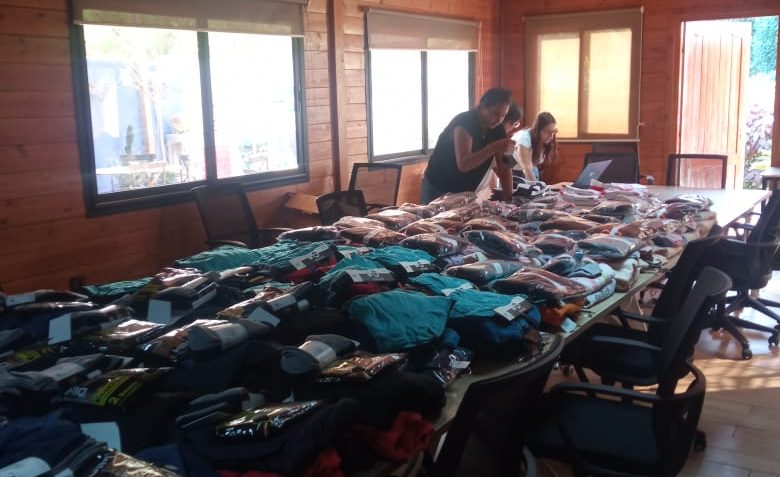Communities critical in support to Morocco’s earthquake survivors

A devastating earthquake hit Morocco on 8 September, leaving over 3,000 dead and many thousands injured and affected. Association de Lutte Contre le Sida (ALCS), a community-based organisation in Morocco, explains why sustaining services for marginalised communities remains their top priority.
Dr Mohammed El Khammas, Head of International Actions and Karim Moucharik, Head of Communications, tell us more about how they are responding.
Several families died and immediately afterwards it was very difficult to work as planned before. Some activities have been postponed.
We were worried about our community health workers, but they were all safe and are in frequent contact with our beneficiaries. Many people, including ALCS workers, have lost their homes and are now living in tents.
Our first response was to set up a crisis management committee led by our headquarters in Casablanca. The committee has developed an emergency aid programme which is being implemented in the regions most affected by the earthquake, in collaboration with the ALCS divisions in Agadir on the southern Atlantic coast and Marrakesh in the centre of the country.
ALCS community health workers are fully involved in the conception and the implementation of the emergency programme. Our focus is on supporting people living with and affected by HIV and it is thanks to the commitment and courage of our community health actors and activists, as well as the support of our historical partners that we were able to react quickly. Nadia, one of our community health workers in Taroudant told us that:
“While this disaster has aggravated the vulnerability of the region’s populations, it has revealed their ability to show solidarity but also innovation and initiative in the care of people who use ALCS’s services.”
Providing emergency care and medical supplies
Under the management of our divisions in Agadir and Marrakesh, we prioritised the distribution of essential items, including food baskets, hygiene products, mattresses, blankets, clothes, shoes and long life milk.
One of our major concerns was how to get medicines to people living with HIV. In Morocco, citizens need their identity card to receive their medication from health centres. With many people losing their documents in the earthquake, we made an agreement with the Ministry of Health to give survivors photocopies of their documents from our confidential database to help them access medical supplies, including ARVs and PrEP, at our sexual and reproductive health clinics and support centres.
Psychological support is key
Unfortunately, many people believed that the earthquake was a “punishment” from God for providing health and support to marginalised communities, such as men who have sex with men and female sex workers. We are concerned about these cultural attitudes.
Some people living and with and affected by HIV fear that they will no longer have access to treatment, prevention and testing services and many people who are most vulnerable to HIV have expressed the need for psychological support.
In response, we have set up two telephone lines where people can make appointments with a remote clinical psychologist. The telephone lines are promoted via posts on social media, community WhatsApp groups, and virtual dating sites.
Ongoing support
The earthquake has exacerbated the vulnerabilities of people living with or exposed to HIV in the region. Our priority is to reduce these vulnerabilities by ensuring people living with or affected by HIV have access to treatment, prevention services and testing for HIV, viral hepatitis and other STIs. We will carry out more work during International Testing Week (20-26 November) and throughout December; including in the areas affected by the earthquake.
We will also continue providing basic necessities and psychological support and intensify our efforts to achieve universal health coverage for our beneficiaries and support them with gathering the correct documents and completing online forms. mandatory administrative procedures.
The government has committed to provide funds for citizens to repair their damaged homes. Despite public attitudes, we want to ensure that marginalised people, including those living with HIV, have full access to the government reimbursement.
For now, the emergency plan developed by ALCS will be implemented for as long as the context requires, but we need more funding to sustain our response and continue supporting people living with and affected by HIV. As such, we have obtained permission from the government’s general secretariat public authorities to collect donations. Thanks to the commitment of our activists and funders, and with your help, we will support people who would have limited or no access to vital services. We are hopeful that we can continue our efforts.
If you would like to donate to the emergency aid programme, visit www.alcs.ma.
ALCS is a Frontline AIDS partner under the Global Fund Nadoum grant.
Tags
HIV testingMiddle East and North Africa (MENA)Morocco

